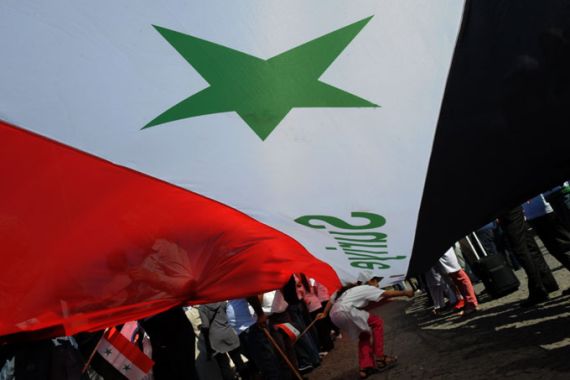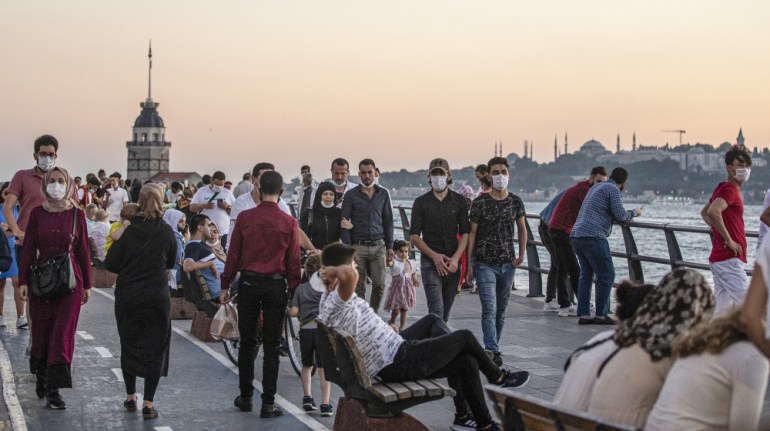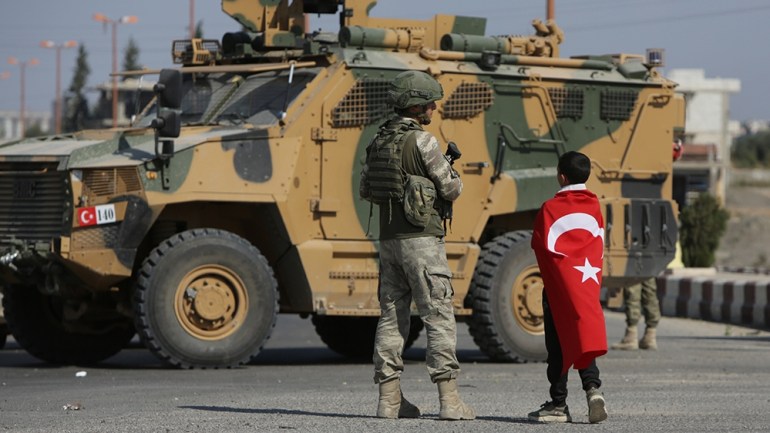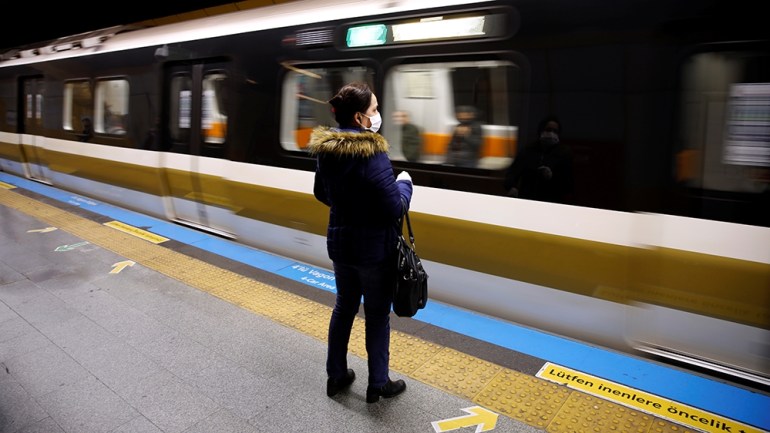How Turkey became a hub for Arab Spring exiles
Turkey is home to four million refugees – mostly Syrians – along with Arab activists, journalists and political figures.

As a charismatic revolutionary from a scrappy Cairo neighbourhood, Ahmed Hassan was one of the stars of Jehane Noujaim’s 2013 documentary The Square, which followed a group of Egyptian activists as they toppled longtime ruler Hosni Mubarak in 2011 and then fought to keep their faltering revolution alive.
The film won three Emmy Awards and was nominated for the Oscars. But Hassan’s life got harder after it was released.
Keep reading
list of 4 itemsRemembering Mohamed Bouazizi: The man who sparked the Arab Spring
What is the Arab Spring, and how did it start?
Remembering the Arab Spring: In films
His work as a cinematographer and filmmaker dried up as production companies stopped hiring him, perhaps because he was blacklisted.
He had to abandon a film project after receiving threats. He could not carry a camera in the street without being harassed. Most of his friends were in prison, some had died.
“I felt like I was just centimetres from jail,” Hassan told Al Jazeera.
In 2018, he jumped at an opportunity to escape and went to Turkey, which has become a major hub for Arab exiles as many of the Arab Spring uprisings that first emerged a decade ago descended into violence and repression.
“You are able to carry a camera in Turkey. That is beautiful actually,” Hassan said. “Here, I’m walking and I feel free.
“I feel there is a government. I see the police but I’m not scared, it’s not like Egypt. I feel like there is law here.”
But life is also hard. Hassan says that, for him, Turkey looks like a watermelon with vivid, enticing red flesh.
“But when you bite into it, it’s salty, not sweet.”

Place of exile
“There is no Arab city like that, with large populations from different parts of the Arab world having these tools of cultural and political expression, like Istanbul at the moment,” Mohanad Hage Ali, a research fellow at the Carnegie Middle East Center, told Al Jazeera.
Ali said this trend first emerged from the soft power policies pursued by President Recep Tayyip Erdogan and his Justice and Development Party (AK Party), in power since 2002, which sought to extend Turkey’s influence and relations in the region through greater diplomacy, investment and educational projects.
It was aided by popular culture as Turkish TV series also became wildly popular across the Middle East and often glamorised Istanbul and glorified its Ottoman past.
“Look at Turkey before Erdogan, [it was not] at the heart of the Arab world the way it is now,” Ali said.
The trend of Arab exiles heading to Turkey accelerated sharply with the fallout from the Arab Spring.
Turkey is now home to about four million refugees – mostly Syrians – along with activists, journalists and political figures from countries across the Arab world.
Neighbourhoods in Istanbul have been transformed by an influx of Arab communities and businesses, with the city’s Arab population likely to be well over one million. Turkey is home to an estimated 700,000 Iraqis. More than 500,000 mostly Syrian refugees live in the southern Turkish city of Gaziantep.
Turkey was broadly supportive of the Arab Spring uprisings, particularly as a staunch opponent of Syrian President Bashar al-Assad and a supporter of Egypt’s short-lived Muslim Brotherhood-linked government of Mohamed Morsi.
Istanbul became a significant Muslim Brotherhood hub, especially after Morsi was overthrown by the military led by general-turned-President Abdul Fattah el-Sisi in 2013.
Islam Akel, an Egyptian journalist and TV presenter, almost died in August 2013 after he was shot and a bullet lodged in his lung at the pro-Morsi sit-in at Cairo’s Rabaa Square, at which at least 1,000 people were killed by the security forces.
He escaped to Lebanon, and then spent time in Sudan, before going to Turkey in 2014. He now works as a presenter at the Muslim Brotherhood-linked Watan TV in Istanbul. Akel praised Turkey for welcoming exiles.
“As an Egyptian Arab Muslim, being in Turkey was not a difficult thing for me, as being in a country where I hear the voices of the muezzins to pray and find mosques in front of me in every street is a matter of reassurance, connection and integration,” he said.

Hamza Zawba, a former spokesman of Morsi’s Freedom and Justice Party, arrived in Turkey in 2014 and now presents a show on the Mekameleen television channel.
“Turkey accepted us to live here as exiles, nobody else did that,” he told Al Jazeera, adding that Turkey provided them with a vital space to challenge el-Sisi’s narrative.
“[The show] is a venue to express my views and to give some analysis, to face the claims of the media of the coup and to raise awareness over what’s going on,” he said.
The Egyptian liberal reformist politician Ayman Nour also moved to Istanbul and set up his own television channel, Al-Sharq TV.
Istanbul’s Arab Media Association has more than 800 members. Exiles from countries such as Libya, Yemen and Syria have also established media outlets, think-tanks, schools, charities and NGOs. Istanbul has also become a place where some LGBTQ Arabs feel safer and can live a more open life.
But while some exiles have thrived, others have struggled, and Turkey’s role as a safe haven has changed over the decade.
‘Shrinking space’
Bassam Alahmad is the executive director of Syrians for Truth and Justice, a non-profit organisation that documents rights violations by all parties in Syria. He came to Turkey from Syria in 2012.
“It was a good atmosphere for us to act and work in,” he said.
But he said the atmosphere became more restrictive over time, especially after Turkey’s first direct military intervention in northern Syria in 2016, and he felt he was no longer able to publish some of the human rights abuses he had documented. He says he was interrogated by Turkish security services over his work in 2018.

He was also threatened by someone he believes is connected to al-Assad’s security forces, but says that although he reported it to the police, they took no action. Murders of prominent activists in Turkey also unnerved some exiles and undermined the country’s reputation as a safe haven.
A Turkish government media spokesperson said they would not respond to Alahmad’s specific claims but provided a statement from a senior Turkish official that said: “Turkey provides a safe haven to nearly 4 million Syrian refugees. We take all necessary steps to ensure that asylum seekers feel at home and safe.”
Alahmad also said that attitudes in Turkey have become more resentful, hostile and racist towards Syrian refugees over time. Many Syrians also struggle to access services and education, can rarely acquire citizenship and are often exploited in informal jobs.
“We felt that it was a shrinking space,” Alahmad said. He and his wife managed to gain asylum in France and moved there in 2019.
“Here, you can say or write anything.”
Hassan praised Erdogan and Turkey for its generosity in welcoming so many refugees and dissidents, but he also mentioned anti-Arab racism as a significant problem.
“When they hear you speak Arabic, things become weird. People look at you and treat you differently. Sometimes when I’m with my friends we don’t speak in Arabic on public transport,” he said.

Some exiles have also been changed by living in Turkey.
Mustafa Menshawy, a research postdoctoral fellow at the SEPAD project, University of Lancaster, told Al Jazeera that many rank and file members of the Muslim Brotherhood have become less conservative in their views or even left the movement after being exposed to a more socially liberal climate in Turkey.
But he also said that the Brotherhood become less hierarchical and more open to debate than it was in Egypt.
“The fact that Turkey, which is authoritarian in the way it treats its own media, is allowing members of the Brotherhood to have a voice, and how democratising that is, is a bit paradoxical,” he said.
“Turkey gives a voice to individuals who were not provided a voice either by the organisation itself in Egypt or by the regime, and this is very revitalising.”
But Menshawy characterises the group’s relationship with the Turkish authorities as a “marriage of convenience”, and he and others say Turkey’s status as an Arab hub is vulnerable to shifting political trends.
The next decade
“I see this [Arab] presence as useful to project power and put Turkey up front as a major player in Arab politics,” Ali said.
But he said hosting so many Arab dissidents can become a problem and “very limiting for Turkey’s options” if it decides to pursue rapprochement with el-Sisi or al-Assad, who now appear entrenched in power, as well as proving unpopular domestically.
He also said Turkey’s role as such a strong Arab hub is very much contingent on Erdogan remaining in office.
“This Arab presence and this Arab experience ends with Erdogan,” he said.
Akel said exiles such as himself worry most about “political vicissitudes and fears about the rise of nationalists” at the expense of the AK Party.
Meanwhile, while Hassan has a lot of Turkish friends, most of his deepest friendships are with people back in Egypt.
“I still feel lonely in Turkey,” he said.
He is also struggling with the economic problems besetting the country, including high inflation, low wages and a lack of employment opportunities. He has been unable to get permission to shoot scenes for a documentary he is making, and says he will try to leave for a Western country when the coronavirus pandemic eases.
“I cannot stay here much longer, it’s become more complicated, it’s not easy to shoot sensitive subjects. And everything is going so slowly, I feel like I’m not stable. But it’s better than Egypt.”
